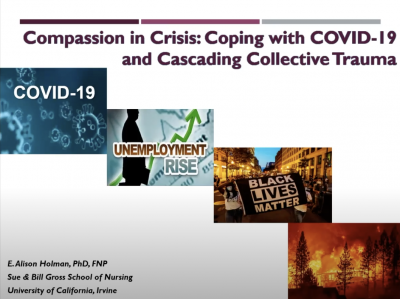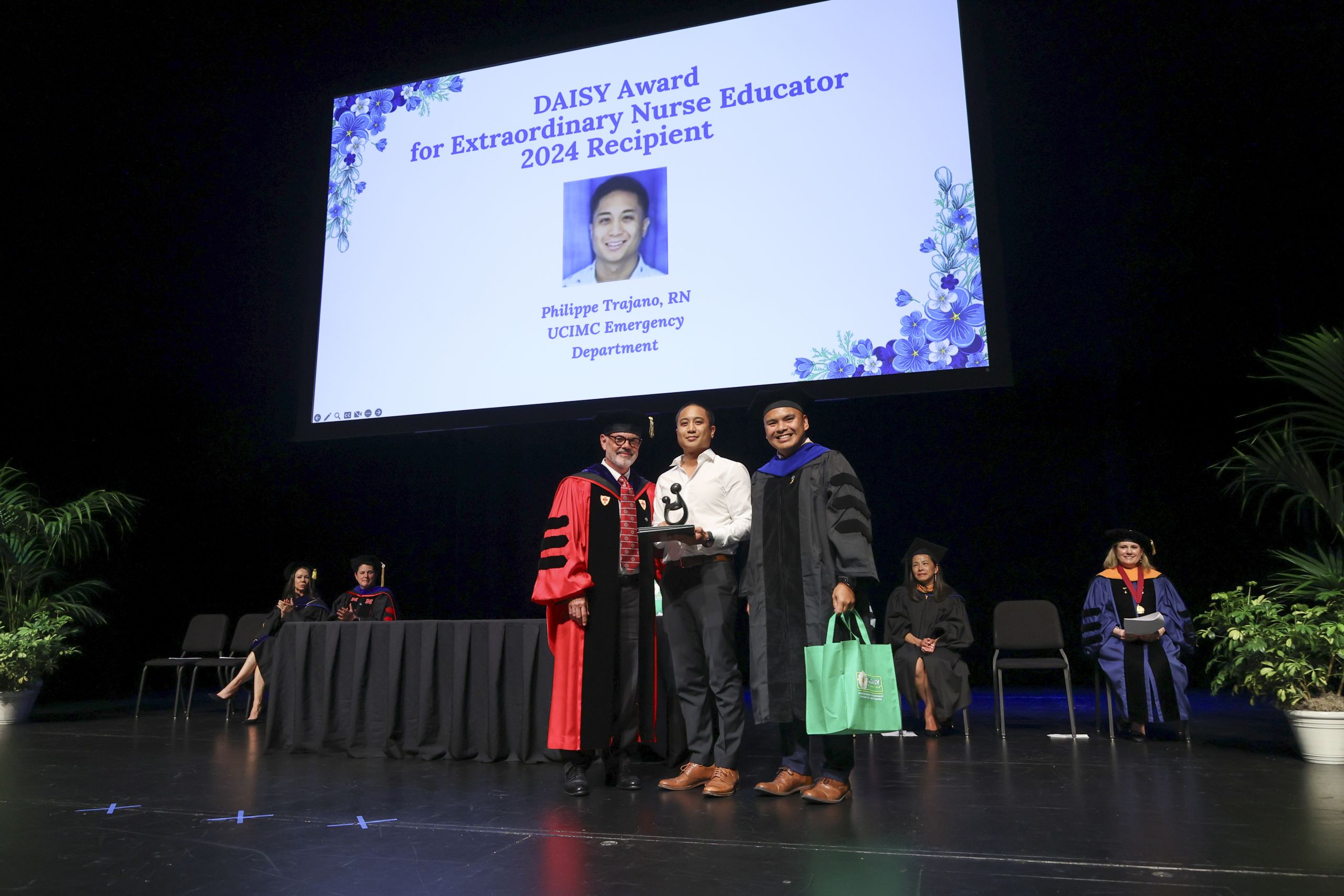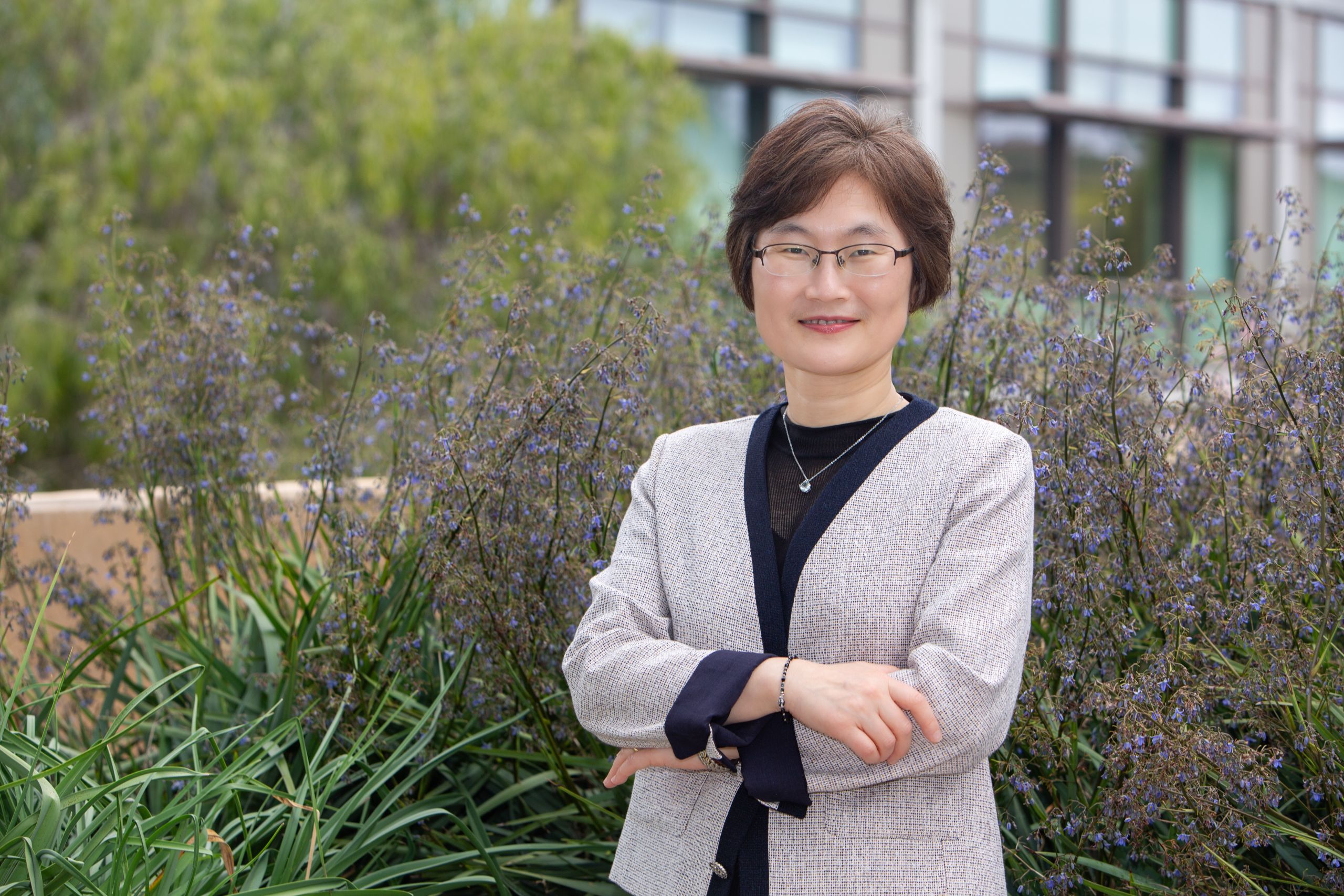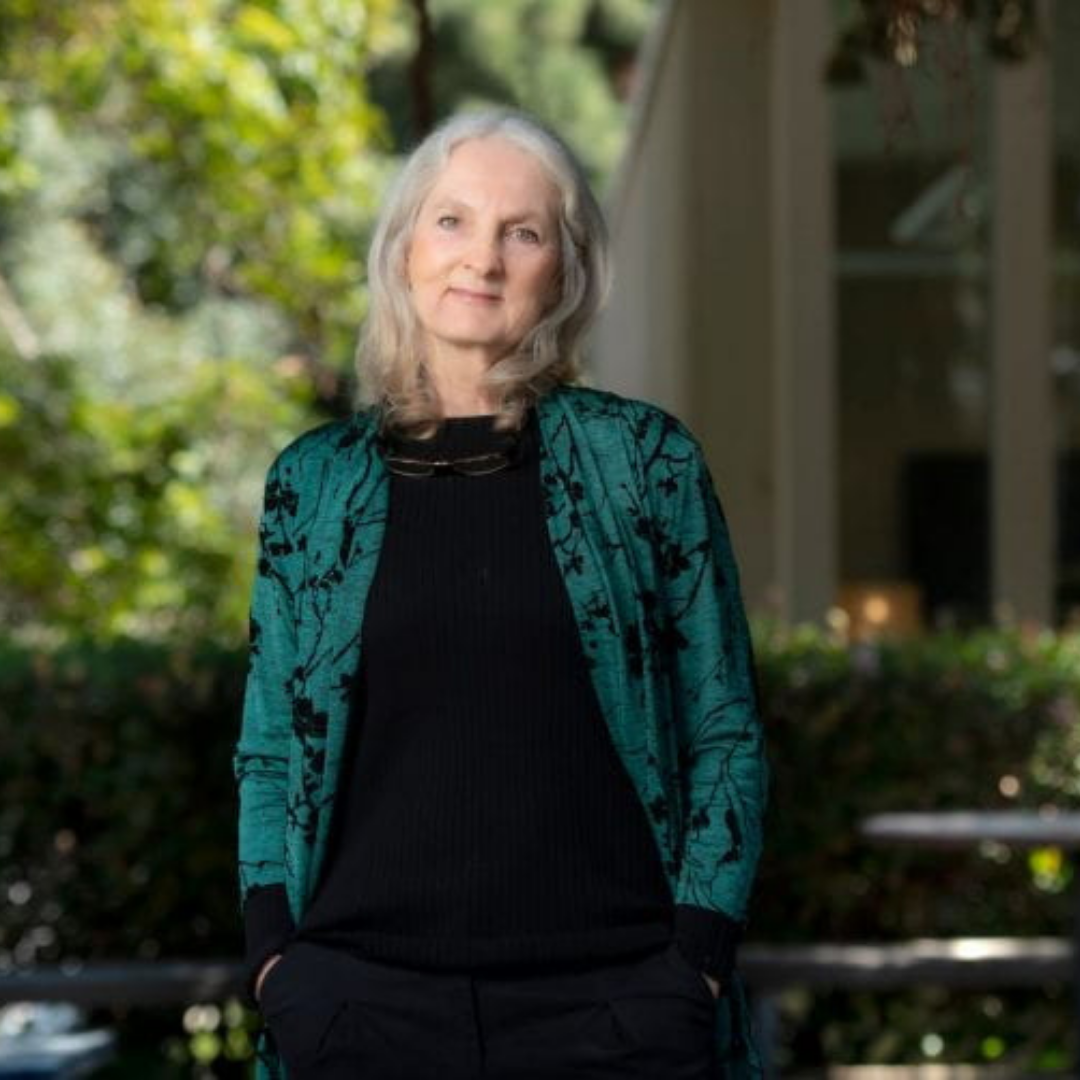 At the 11th Annual Suzanne Renée Leider Lecture, Professor E. Alison Holman offered a stirring call to action on how healthcare providers can recover from a traumatic year and reignite their compassion.
At the 11th Annual Suzanne Renée Leider Lecture, Professor E. Alison Holman offered a stirring call to action on how healthcare providers can recover from a traumatic year and reignite their compassion.
During “Compassion In Crisis: Coping with COVID-19 and Cascading Collective Trauma,” Holman shared her extensive research and the various ways the pandemic has left a nation traumatized and hurting.
Citing mass death and illness, a recession, climate-driven national disasters and a reckoning with our racist history, Holman says “Individually, each of these events represents a major collective stressor. Taken together, they are unlike anything we’ve seen since 9/11.”
The pandemic has taken a major toll on healthcare providers, particularly nurses. The burnout many are experiencing can lead to “depersonalization,” a state of being numb and unable to experience empathy with their patients.
“And that is a serious threat to the provision of compassionate nursing care.”
Holman says if this isn’t addressed, it could lead to a compassion crisis. “We need to commit to cultivating compassion throughout our lives,” she urges.
“Compassion is a calling to be humble, to be open, to be conscientious in all areas of our lives. To do that, we must look in the mirror, reflect on our biases and behaviors, and consciously choose to promote a culture of belonging. That means changing our own behavior towards other people, and identifying and addressing the root causes of the systemic trauma.”
Watch her talk as she explores what it means to be compassionate in the face of great trauma.
The Suzanne Renée Leider Lecture annually presents research supporting compassionate care, an element of Leider’s practice that she knew was vital. This annual lecture honors her memory.
Holman was selected as the lecturer because she and her research are highly regarded by the Leider family.




Leave A Comment